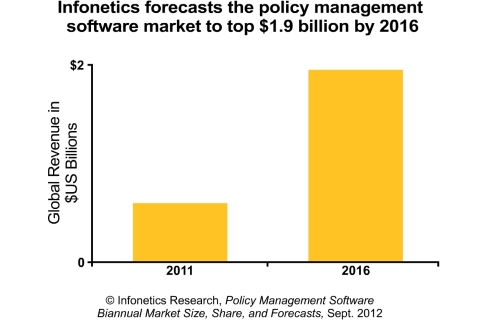 The wireless segment is a key area of growth in the policy management market, as mobile operators deploy policy solutions for 3G and LTE networks.
The wireless segment is a key area of growth in the policy management market, as mobile operators deploy policy solutions for 3G and LTE networks.
Mobile operators in emerging markets such as Eastern Europe and the Middle East are using policy management to combat high subscriber churn rates and increase ARPU through loyalty programs, expanded payment options, and value-added services.
Shared data plans—where a ‘bucket’ of data is shared among subscribers or devices—are driving operator investment in flexible, real-time policy solutions.
The larger policy management and billing vendors are more tightly integrating policy control and charging functionality into their solutions.
“Growth in the policy management market is being driven not only by new wins, particularly in conjunction with infrastructure upgrades, but also through the expansion of existing contracts and by replacement activity,” said Shira Levine, directing analyst for service enablement and subscriber intelligence at Infonetics Research.
“We’re seeing many operators run into scalability and flexibility issues with their first-generation policy solutions, and they’re either replacing them with new solutions or augmenting what they have in place with additional functionality to support things like new pricing models and advanced subscriber controls,” Levine added.
Meanwhile, Openet is leading the policy management software market in 2011, followed by Huawei, Tekelec and Amdocs. Sales of policy management software market grew 41 percent to $589 million 2011. Operators in developed markets continue to make policy vendor selections in line with LTE trials and deployments
